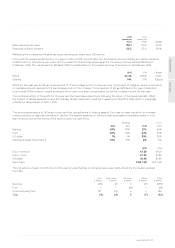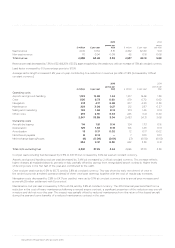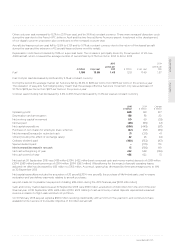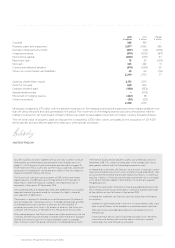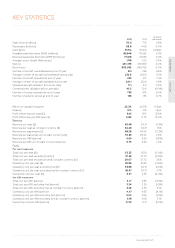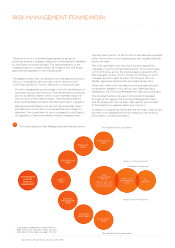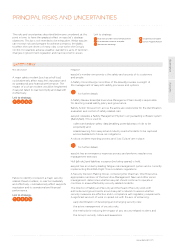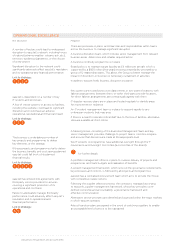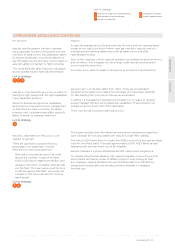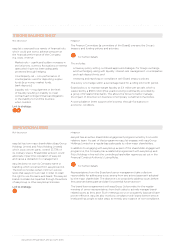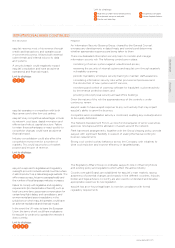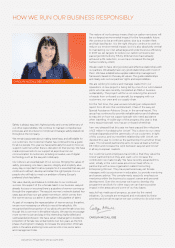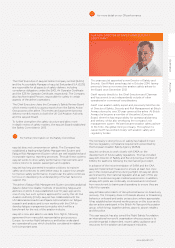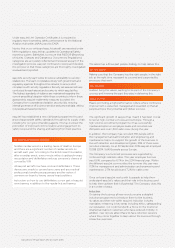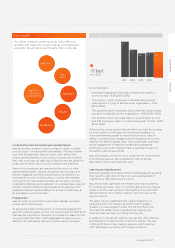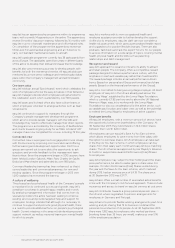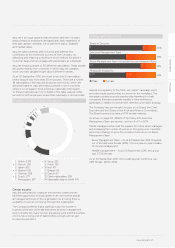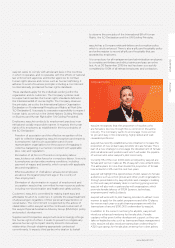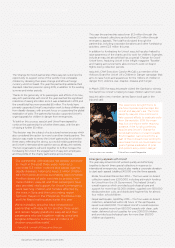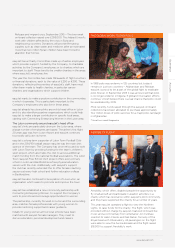EasyJet 2015 Annual Report Download - page 33
Download and view the complete annual report
Please find page 33 of the 2015 EasyJet annual report below. You can navigate through the pages in the report by either clicking on the pages listed below, or by using the keyword search tool below to find specific information within the annual report.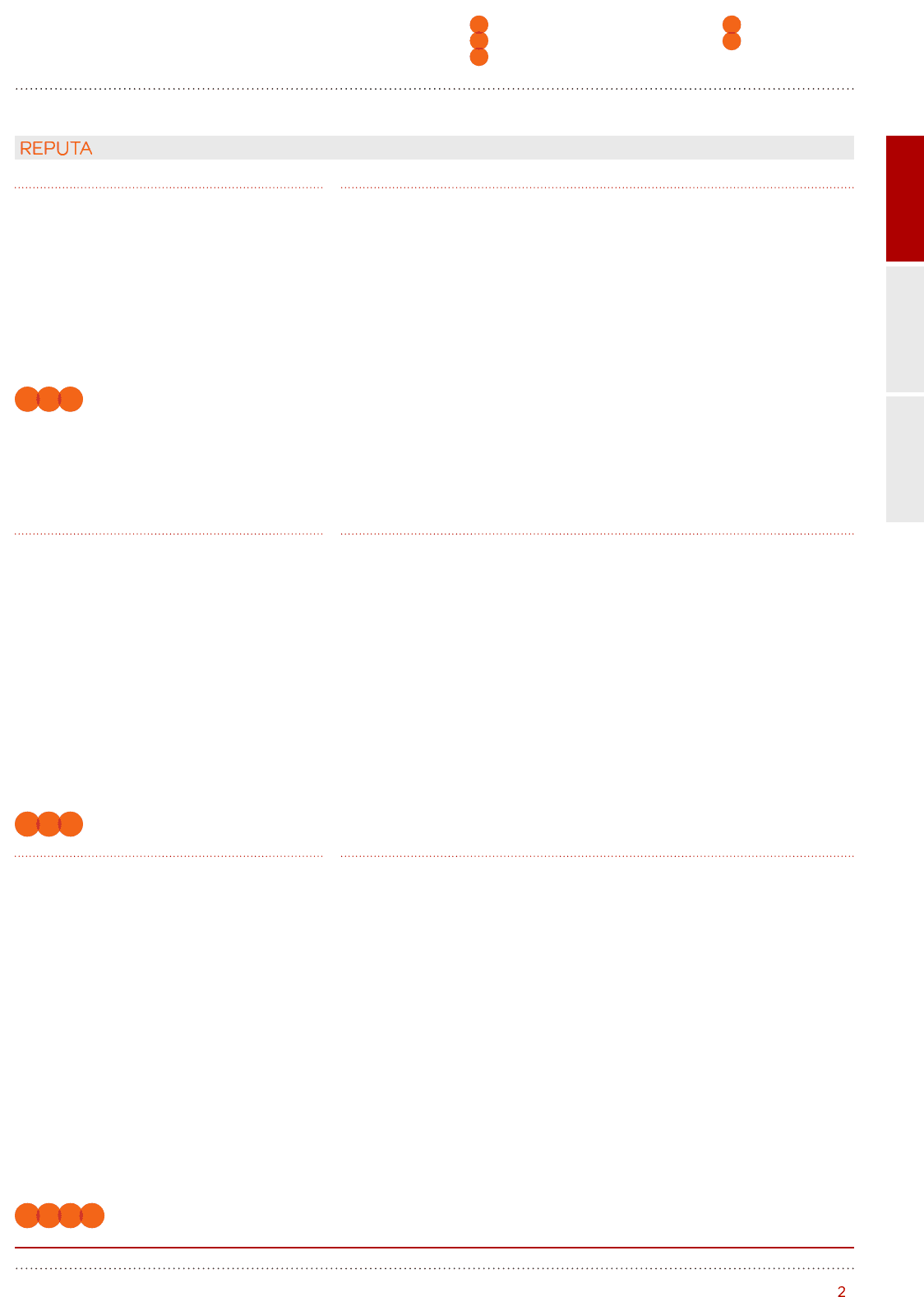
Strategic report Governance Accounts
9
www.easyJet.com
TIONAL RISKS CONTINUED
Risk description Mitigation
Cyber threat and information security
easyJet receives most of its revenue through
credit card transactions and operates as an
e-commerce business. It faces both external
cyber threats and internal risks to its data
and systems.
A security breach could negatively impact
easyJet's reputation and have an adverse
operational and financial impact.
Link to strategy:
2 3 5
An Information Security Steering Group, chaired by the General Counsel,
oversees any developments in data threats and controls and determines
whether appropriate responses are being taken to them.
There is a dedicated information security team to monitor and manage
information security risk. The following controls are in place:
• monitoring of secure systems against unauthorised access;
• reviewing the security of internal systems and easyJet.com through quarterly
vulnerability scanning;
• periodic mandatory employee security training to maintain staff awareness;
• considering information security risks within procurement processes and
the introduction of new systems and IT services;
• monitoring and control of scanning software for fraudulent customer activity
by the revenue protection team; and
• providing robust physical security at head office buildings.
Given the nature of this risk the appropriateness of the controls is under
continuous review.
Competition and industry consolidation
easyJet operates in competition with both
flag carriers and other low-cost airlines.
easyJet's key competitive advantages include
its network, cost base, digital innovation and
efficient and robust capital structure. Failure
to retain these advantages or react quickly to
competitor changes could have an adverse
financial impact.
Industry consolidation could also affect the
competitive environment in a number of
markets. This could cause a loss of market
position and erosion of revenue.
Link to strategy:
1 2 3
easyJet seeks to have a rapid response to any such activity that may impact
easyJet's ability to grow the business.
Competitor and consolidation activity is monitored, enabling key routes/positions
to be readily defended.
The Network Development Forum, a cross-functional panel of senior executives,
approves new bases and the allocation of assets around the network.
Fleet framework arrangements, together with the Group's leasing policy, provide
easyJet with significant flexibility in respect of scaling the fleet according to
business requirements.
Strong cost control is a key behaviour across the Company, with initiatives to
drive cost reduction and improve efficiency in targeted areas.
Legislative and regulatory risks
easyJet is exposed to legislative and regulatory
oversight across its network and all countries where
it sells its product via a native language website. This
will increase as easyJet grows geographically and
the number of local language websites increases.
Failure to comply with legislative and regulatory
requirements (or interpretations thereof), such as
local consumer laws, passenger compensation for
certain long flight delays and cancellations, and
environmental and airport regulations, in the
jurisdictions in which easyJet operates could have
an adverse reputational and financial impact.
In the event the UK votes to leave the European
Union, the terms of exit could have implications
for easyJet to continue to operate the network it
does currently.
Link to strategy:
2 3 4 5
The Regulatory Affairs Group co-ordinates easyJet's role in influencing future
and existing policy and regulations which affect the airline industry.
Country oversight Boards are established for easyJet's main markets, raising
awareness of potential changes and impacts in the different countries. Industry
bodies and legal advisers in-country are also used to understand and develop
appropriate responses to new legislation.
easyJet has an in-house legal team to monitor compliance with formal
regulatory requirements.
1
2
3
5
4
Link to strategy:
Build strong number 1 and 2 network positions
Drive demand, conversion and yields
Maintain cost advantage
Culture, People & Platform
Disciplined use of capital


